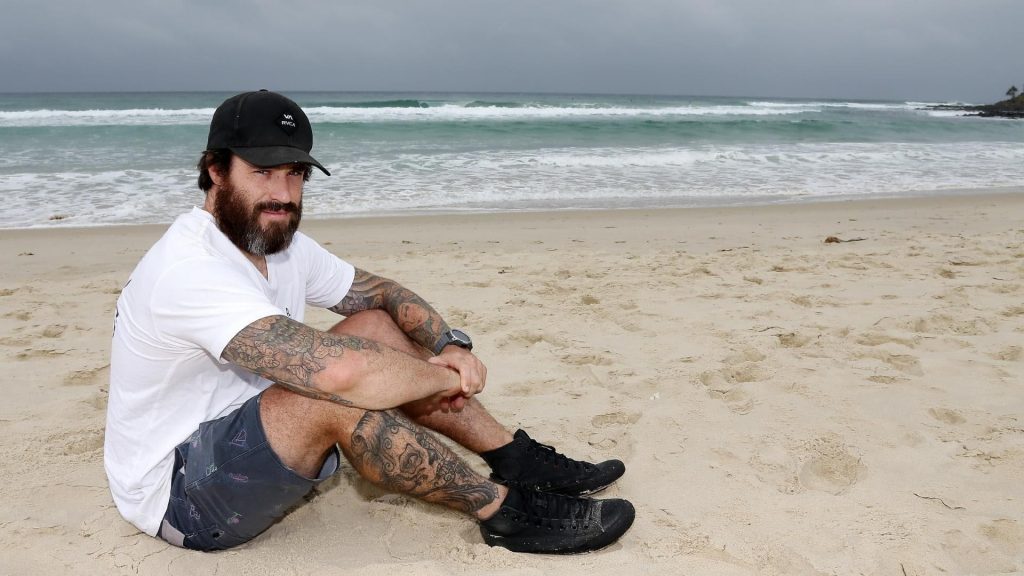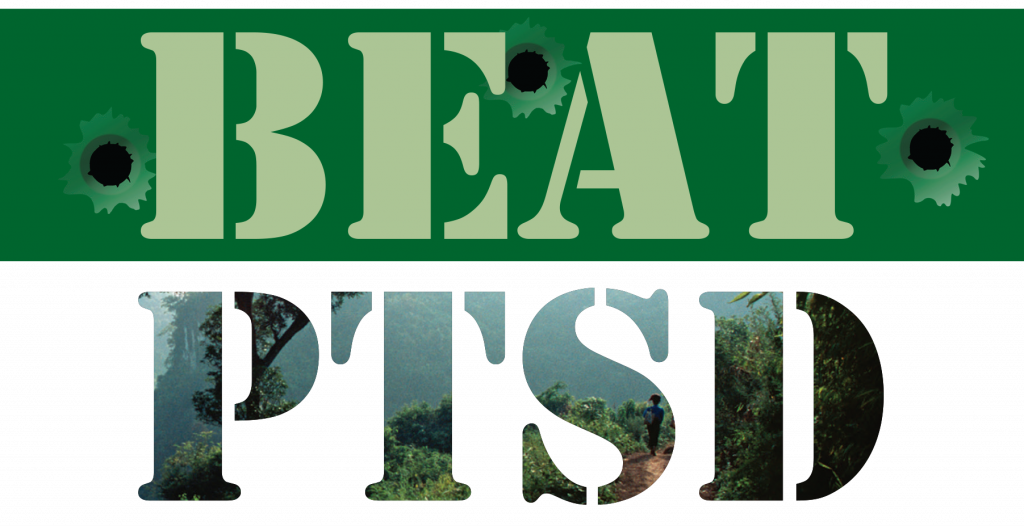MEDIA AND NEWS

Balanced on his board, Matthew Sawyer is at peace in the ocean
by Kevin Lloyd-Thomas April 09, 2019
While Matthew survived a tour of Afghanistan and the transition to civilian life, it hasn’t been easy.
But between therapy, the veteran support group The Men’s Shed at Nerang and surfing, he’s hanging in there.
As a member of the Association of Veteran Surfers, Matthew has found a very GC way to deal with the trauma he faced while serving his country.
Not that he’s out of the water yet.
“I still struggle talking about my PTSD,” he says. “You know, as a man, as a member of the military, it just feels like weakness, which makes you feel shame.
“That’s one of the reasons it’s so hard to get help. A lot of us don’t want to admit we even need help.
“I don’t think I even realised that was what was going on. It was my mates in the army who said I needed to go talk to someone. They basically said if I didn’t go, they would drag me there themselves.
“Then my friends Matt and Kieran started up the AVS and that’s just made a huge difference to my life. We get together the third Sunday of every month and just hang out, talk and surf. There’s about 100 veterans all there by the beach. It’s magic. I have a long way to go still but it just keeps me going.”
It’s a service he only wishes could have helped his close mate and fellow Gold Coaster Jesse Bird, who died by suicide in 2017, aged 32.
Jesse had been down to his last $5. His body was found surrounded by letters from the Department of Veterans Affairs, which had effectively blocked his claim that he had been wounded by the trauma of serving in Afghanistan.
An official inquiry into his case found there were significant failures by the Department of Veterans Affairs and as a result the Coalition Government began pouring money into mental health services for veterans.
Matthew says he too waited for years before help was provided, and he’s still dealing with the death of his friend on a daily basis.
“Jesse and I weren’t in the same regiment but we grew up together on the Gold Coast. He joined the army first and before I decided to sign up I sat down with him for advice,” he says.
“We both had PTSD but I’m the one still here. Suicide is a huge issue within the veteran community.
“We’ve lost nine times more veterans to suicide than to combat since Australia joined the war in Afghanistan in 2001.”
Across the entire duration of the conflict in Afghanistan, 41 members of the Australian Defence Force died in action, each one commemorated.
But in 2015 alone that same number of current and ex-service personnel took their lives. Few know their stories.
For Matthew, who served in Afghanistan in 2012, it took years before he felt the full effects of PTSD.
After joining the infantry in 2008, he discharged himself in 2014 and immediately joined a security detail working in Papua New Guinea for three years.
It was when he finally stopped that the trauma caught up.
“We spend years training how to bring ourselves to this state of high alert, but it’s really hard to climb back down from that,” he says.
“Years of living in a state where you just have to keep looking over your shoulder — it wears you down physically and mentally.
“Plus just being in Afghanistan was a real eye-opener. We were given lessons in cultural awareness and etiquette but some of the things we saw … it was disturbing.
“The way children and animals were treated was hard to stomach. There were young boys being passed around as sexual partners for men, and dogs being abused and beaten. We did what we could but there wasn’t much we could do.
“I could deal with all of it when I was serving. I needed to be at that level of high alert and dedication to duty. But now it haunts me. Depression, anxiety, it’s all part of the package and it makes it really hard to move forward.”
Matthew says as well as the constant high level of stress he was living at, the death of his friend, Private Robert Poate, and the threat to his life while teaching Afghani soldiers traumatised him.
Robert, or Robbie to friends and family, was killed just months after Matthew was sent home from Afghanistan. Like Matthew, Robbie was mentoring Afghan soldiers when he was attacked by one of the students while relaxing at a patrol base. Two other Australian soldiers were also killed.
“There were two regiments based at Enoggera and I was in 8/9 RAR and Robbie was in 6 RAR. We were really good mates. He arrived before I left and it was great to see him.
“Then I was home and news of the attack came out. I was just shattered.
“While I was in Afghanistan one of my students pulled his weapon on me and yelled he was going to kill me. At the time, I was more angry than anything. But over the years, it just plays on me how that could have gone so differently.
“Even when I got home and got back to Enoggera, it just wasn’t right anymore.
“I was subjected to some pretty poor behaviour from some seniors. Nobody talks about this much but it happens to a lot of us. It’s not quite bullying and it’s not hazing, it’s just poor behaviour, people sort of picking on you for no good reason.
“Eventually I had enough and I discharged myself in 2014. The next day I got on a flight to Papua New Guinea.’’
Matthew says once he was home he found it hard to relate to his old non-military friends and even struggled to speak about his experiences with his mother and father.
He says while modern vets aren’t subjected to the abuse that returned servicemen from Vietnam were, there is still a level of social disconnect.
“About five years ago we were told not to wear our uniforms in public because of some events in the news. There is still this concern about our public perception, which is just political correctness gone mad.
“It’s the same as the furore about Australia Day. I served alongside a number of indigenous soldiers and they had huge pride in our national flag and our national day of celebration.
“Pride is not a dirty word. Without it we wouldn’t have a military to protect our freedom.
“I still miss the army. I miss the camaraderie with my mates, the sense of purpose. A part of me would love to go back but I can’t. Still, those guys were and are closer to me than my family.’’
Matthew says he hasn’t worked for the past 18 months due to his PTSD and he’s still taking each day as it comes.
But he does have one plan in the pipeline.
“A friend of mine started this service called Whiskey’s Wish, which provides service dogs for servicemen and women and first responders with PTSD.
“These dogs can sense when you’re struggling and divert you. They give you unconditional love and it gives us a purpose in caring for another creature.
“I’m actually going to train my own dog. It’s a cool skill to have plus I think it will add that extra level of bonding.”
As well as the monthly meet-ups with AVS, Matthew is in the water almost every day, rediscovering the passion he had for the ocean as a boy.
With Anzac Day looming, he says the AVS crew will gather on the beach where they expect some special guests to drop in.
“I’ve actually been amazed by how we’ve been embraced by the surfing community. We’ve been invited to some of the big boardrider events and those guys show us so much respect, it’s incredible.
“Last year on Anzac Day (professional surfer) Bede Durbidge sat around with our group and had some beers. It’s a small gesture but that feeling of inclusion is what we all need.”
Matthew knows there are still troubled waters to navigate but as long as he’s close to the ocean, he can find peace in that no man’s land.
